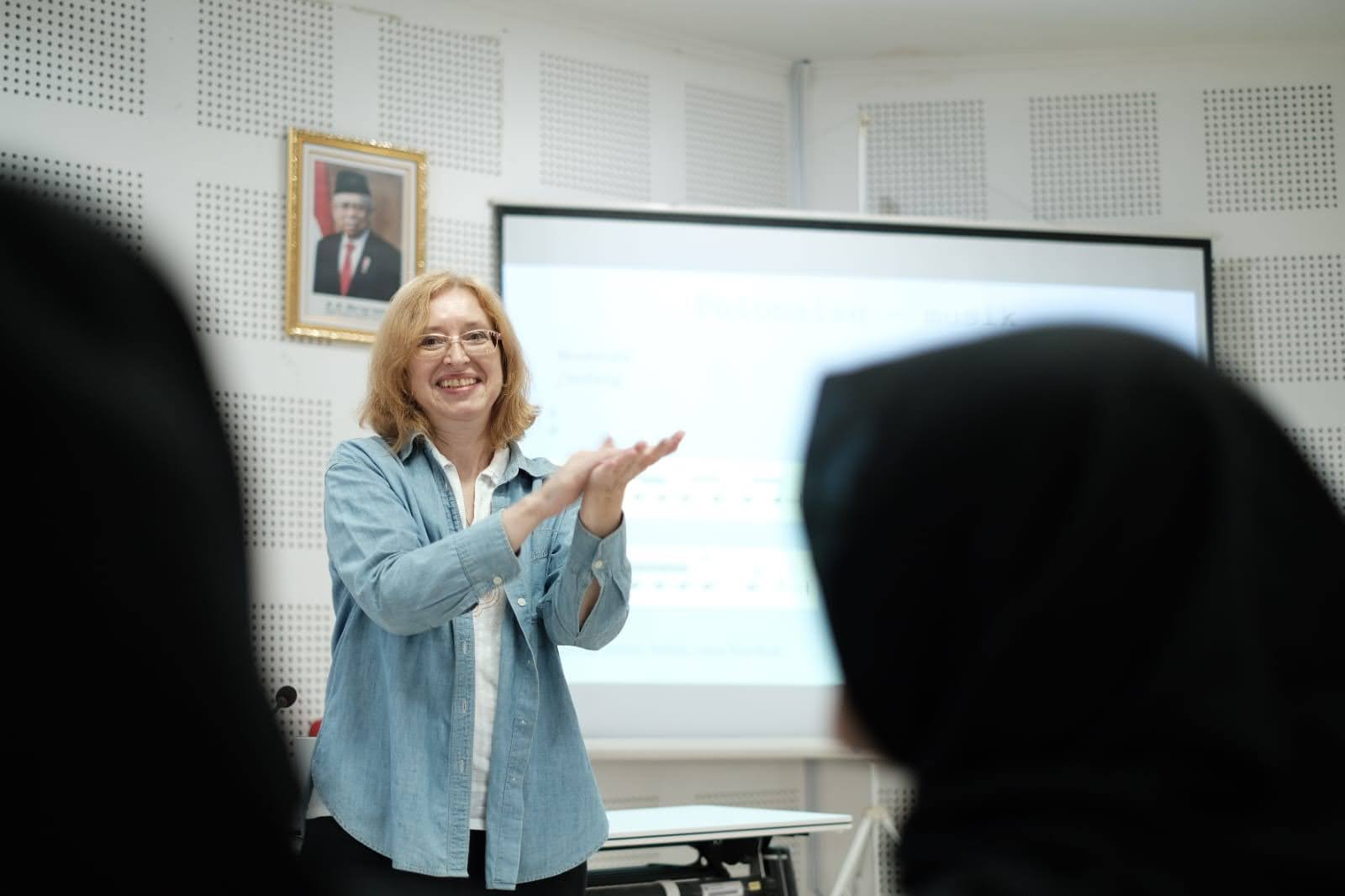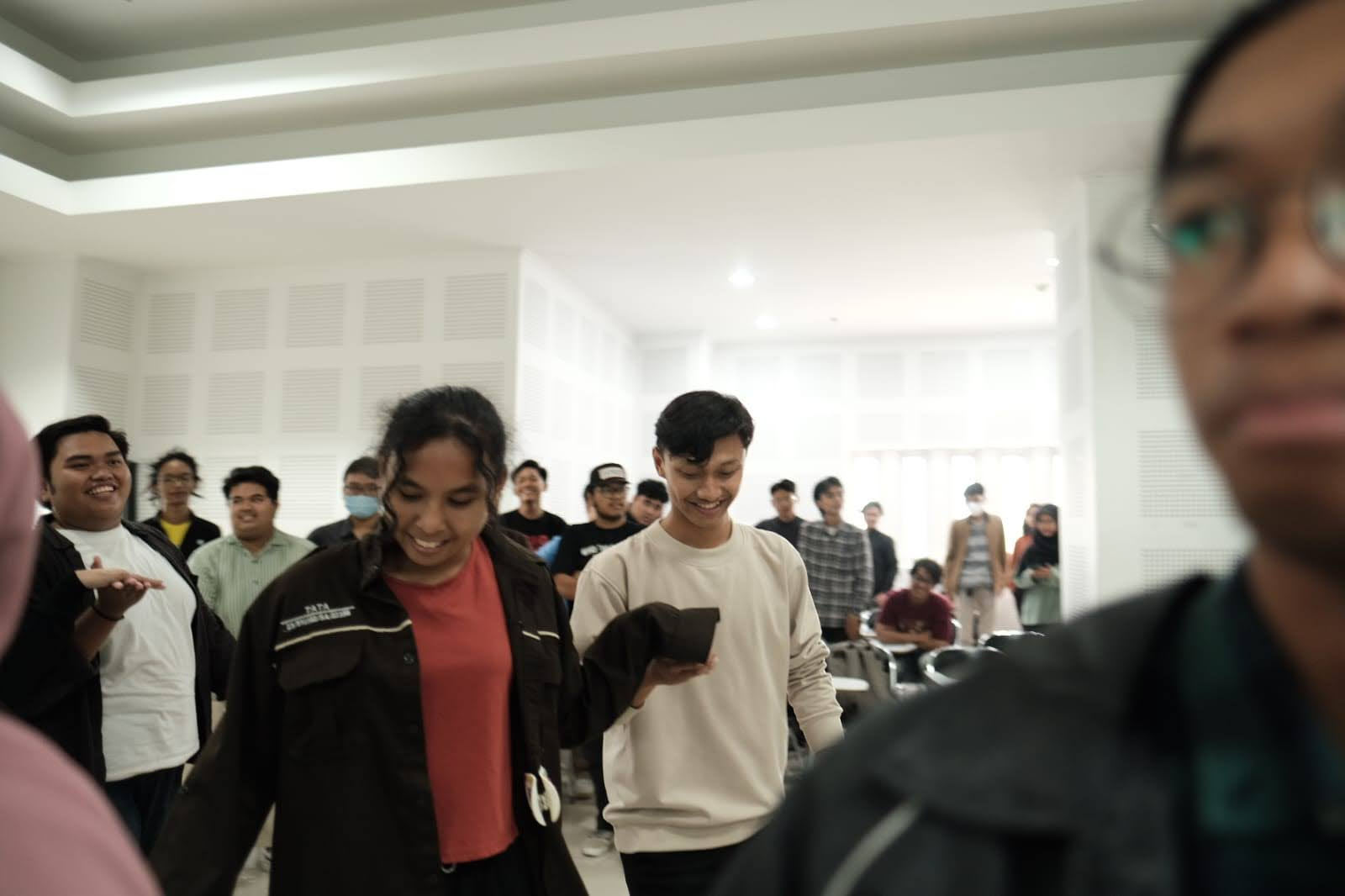
On October 1, 2024, the Folklore Class of the Cultural Anthropology Undergraduate Study Program, Department of Anthropology held a cultural workshop by inviting a guest lecturer. This Folklore class was taught by Dr. G.R. Lono Lastoro Simatupang, M.A. and Mubarika D.F.N, M.A. and what attracted the attention of the students this workshop discussed the Polonez Dance. The dance is an intangible cultural heritage from Poland. The material was delivered by Dr. Marzanna Popławska from the University of Warszawa, Poland. The workshop successfully highlighted the specialty of Polish performing arts and showed how intangible cultural heritage can optimize its role in achieving the Sustainable Development Goals (SDGs).

The opening began with a warm welcome from Dr. Marzanna Popławska in Polish, “dzień dobry,” or “good morning” in Indonesian. The atmosphere immediately became intimate with the enthusiasm of the participants who wanted to learn more about the history and meaning of the Polonez Dance. Dr. Marzanna Popławska has been researching cultural heritage both in Poland and in other countries for more than 10 years, and has experience in studying the development of cultural heritage in Indonesia, which further enriched the discussion during the event.
The history and meaning of the Polonez or Polonaise Dance comes from the French “polish” which means “from Poland”, so this dance is one of the famous traditional dances from Poland. Its history can be traced to the Middle Ages and Renaissance with the name Polonaise becoming widely known in the 18th century. Dr. Popławska explained that Polonez is a very important intangible cultural heritage for Poland, being a symbol of nationality, honor, and unity. In 2015, Polonez Dance was recognized as Poland’s national dance alongside four other traditional dances. In 2019, Polonez was listed as one of the elements of Poland’s intangible cultural heritage and in 2023 Polonez Dance was officially recognized by UNESCO as a World Intangible Cultural Heritage.
Polonez is a unique dance because it harmonizes performing arts with aspects of anthropology and folklore. This dance is not just a tradition or ritual, but a living and dynamic culture in Polish society. Polonez is also often performed at various state and ceremonial events, with costumes varying depending on the region of origin of the dancers. In Kraków, for example, dancers wear royal costumes and traditional clothes that reflect the nuances of Polish history.
In relation to the SDGs, Dr. Marzanna Popławska also emphasized the importance of preserving cultural heritage such as Polonez Dance in a global context, especially in supporting the Sustainable Development Goals (SDGs). In particular, Polonez Dance contributes to the achievement of SDG 11, namely “Sustainable Cities and Communities”, which aims to protect and maintain the world’s cultural heritage as part of the sustainability of communities and cities. Polonez Dance as an intangible cultural heritage has a vital role in maintaining the cultural identity of a nation while promoting togetherness, equality and harmony in its society. With its characteristic slow movements, Polonez Dance has signaled the values of honor, cooperation, and unity needed in the era of globalization. This is also in line with SDG 4, namely “Quality Education”, where the preservation of traditional culture provides a rich education about history and cultural identity to the younger generation, both at home and abroad.

In conclusion, this workshop not only successfully introduced the beauty and depth of meaning of Polonez Dance to the participants, but also showed how intangible cultural heritage can contribute to the achievement of sustainable global development goals. Through Polonez Dance, people can learn about the importance of appreciating cultural diversity and promoting universal values such as unity, honor, and peace.
The event was closed with an interactive Q&A session, where participants had the opportunity to ask more about Dr. Marzanna Popławska’s experience in researching intangible cultural heritage in various countries, as well as how Polonez Dance can continue to be preserved in the midst of modernization and changing times. This workshop inspired the participants to continue preserving and promoting their own cultural heritage, while supporting the achievement of the SDGs through education, cultural preservation, and international collaboration.
Muhammad Lodhi Firmansyah
Photo: Puspita Nindya Sari
Translator: Sandya Kirani

